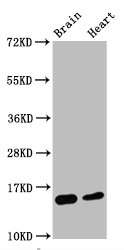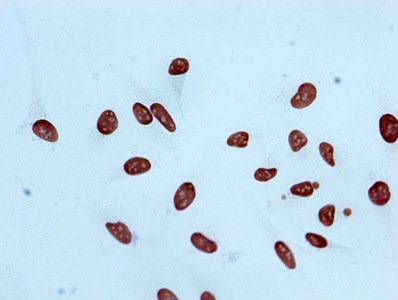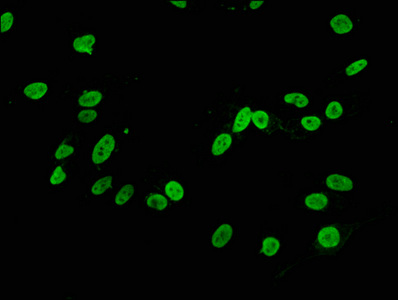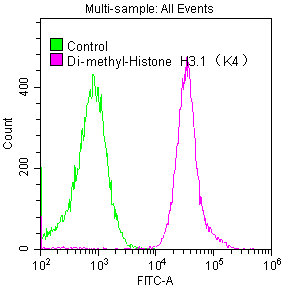
Western Blot Positive WB detected in Mouse brain tissue,Mouse heart tissue All lanes Di-methyl-Histone H3.1(K4)antibody at 0.55microg/ml Secondary Goat polyclonal to rabbit IgG at 1/50000 dilution Predicted band size: 15 KDa Observed band size: 15 KDa
Di-methyl-Histone H3.1 (K4) Recombinant Monoclonal Antibody

CSB-RA010418A04ME2HU
ApplicationsFlow Cytometry, ImmunoFluorescence, Western Blot, ELISA, ImmunoCytoChemistry
Product group Antibodies
ReactivityHuman
TargetH3C1
Overview
- SupplierCusabio
- Product NameDi-methyl-Histone H3.1 (K4) Recombinant Monoclonal Antibody
- Delivery Days Customer20
- ApplicationsFlow Cytometry, ImmunoFluorescence, Western Blot, ELISA, ImmunoCytoChemistry
- CertificationResearch Use Only
- ClonalityMonoclonal
- Clone ID6F6
- ConjugateUnconjugated
- Gene ID8350
- Target nameH3C1
- Target descriptionH3 clustered histone 1
- Target synonymsH3 histone family, member A; H3/A; H3C10; H3C11; H3C12; H3C2; H3C3; H3C4; H3C6; H3C7; H3C8; H3FA; HIST1H3A; histone 1, H3a; histone cluster 1 H3 family member a; histone cluster 1, H3a; histone H3.1; histone H3/a
- IsotypeIgG
- Protein IDP68431
- Protein NameHistone H3.1
- Scientific DescriptionCore component of nucleosome. Nucleosomes wrap and compact DNA into chromatin, limiting DNA accessibility to the cellular machineries which require DNA as a template. Histones thereby play a central role in transcription regulation, DNA repair, DNA replication and chromosomal stability. DNA accessibility is regulated via a complex set of post-translational modifications of histones, also called histone code, and nucleosome remodeling.
- ReactivityHuman
- Storage Instruction-20°C or -80°C
- UNSPSC12352203



